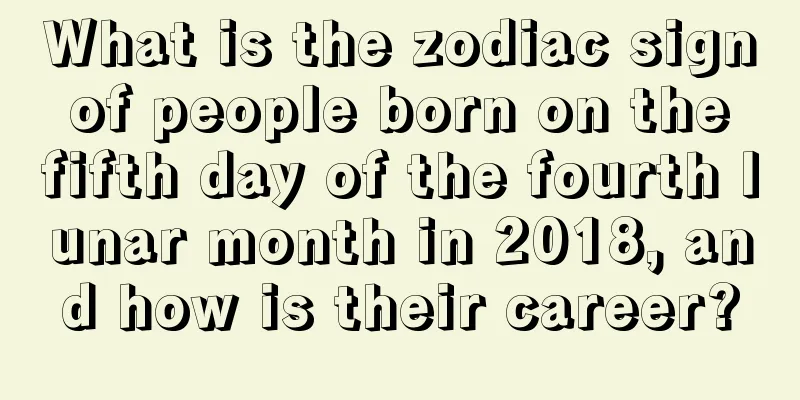What are the customs and etiquette on the sixth day of the first lunar month? What are the sayings and taboos?

China has a history and culture of about 5,000 years, and therefore has formed various customs and etiquette over a long period of time. So what are the customs and etiquette on the sixth day of the first lunar month, and what are the sayings and taboos? The Fortune Teller website provides you with more information related to the first month of the lunar calendar in 2018. You are welcome to learn more about it!What are the customs and etiquette on the sixth day of the first lunar month? What are the sayings and taboos?Market Day:During the Chinese New Year, people usually complete various traditional customs and rituals after the fourth day of the first lunar month, such as worshiping the Jade Emperor on the ninth day. So these two days are all about going out for fun. People from all villages and towns will go to the town to attend the market, and those who have the conditions will go out to broaden their horizons. Qingshui Zushi Temple Day: Qingshui Zushi (Fujian and Taiwan), the sixth day of the first lunar month is the birthday of Qingshui Zushi, who is also known as the Black-faced Zushi or the Fallen-nosed Qingshui Zushi (because when there is a disaster in the area, Qingshui Zushi will show his divine power and fall off his nose). On the sixth day of the first lunar month every year, a grand celebration is held at the Qingshui Zushi Temple in Wanhua District, Taipei. Water-releasing days: You cannot wash clothes, hair or feet casually in the first month of the lunar year. You must wash them on the "water-releasing days", which are the sixth, sixteenth and twenty-sixth days. People usually eat dumplings on this day. In some places, the water-releasing day on the sixth day of the first lunar month is quite particular. According to the legend of the elders, the waste water we use every day is kept by the god in heaven who is in charge of water. After death, the soul in the underworld must drink up all the dirty water it has destroyed before it can be reborn. Women use more water, so when a woman dies, a paper cow is buried with her, so that the cow can help drink up the dirty water quickly. The water god in heaven has mercy on us and releases the dirty water on the sixth day of the first lunar month every year. Therefore, every household takes this opportunity to wash the clothes they will wear during the New Year, and the dirty water that would otherwise be wasted is also released. Opening day: The sixth day of the first lunar month was the day when merchants opened for business in the old days. On this day, shops of all sizes open for business to receive customers after the Chinese New Year. Shop assistants set off firecrackers in front of their doors to celebrate the New Year. Shopkeepers especially hope to make big business today, which is commonly known as a "good start." At the same time, a grand ceremony to worship the God of Wealth is held. Buyers and sellers must worship the God of Wealth devoutly. Every industry and profession must offer tablets to their ancestors, such as carpenters offering tablets to Lu Ban. The New Year lasts for five days. Generally, after the fifth day of the first lunar month, the New Year celebration is basically over. At around 4:00 a.m. on the sixth day, except for the Hui Muslim shops and western pharmacies, all other shops, especially the oil and salt shops, dried fruit shops, silk and satin shops, commonly known as Lao Xier Houses, were led by the shopkeepers (managers) and all the partners to burn incense and kowtow to the "Baifen" (a complete album of gods) and the "Eighteen Buddhas of the Three Realms of Heaven and Earth" enshrined in the center of the shop. Then they brought the god codes, "money and grain" and incense roots to the street, placed them on racks of sesame straw and pine branches and burned them, which was called "sending off the gods." At this time, firecrackers blasted, the guys were shaking the abacus vigorously, and hitting the scale plate with the scale rod, and there was a sound inside and outside the house, which was called "loud and clanging, good luck and good fortune." At this time, beggars would come and sing "wedding songs", and the shopkeeper would have to reward them with some "wedding money". In an atmosphere of strong wishes, the shop opened its window guards, revealing a red couplet that had been pasted long ago that read "Good luck in the opening of the business, and everything goes well", and officially began business. After the opening, if the first customer is a man, it is considered a sign of prosperous business. If it is a woman, it is considered a rude omen for the God of Wealth and the year will be unlucky. Day of Sending Away Poverty: "Sending away the poor" on the sixth day of the first lunar month is a very distinctive seasonal custom among the ancient Chinese people. The meaning is to offer sacrifices to the poor ghost (the god of poverty), also known as the "poor son". According to Sui Shi Guang Ji quoted from Wen Zong Bei Wen by Chen Yuanliang of the Song Dynasty, "During the time of Emperor Zhuanxu and Emperor Gao Xin, a son was born in the palace. He did not wear complete clothes and was called the Poor Son in the palace. Later, he died on the last day of the first lunar month. The palace buried him and said to each other, 'Today we send off the Poor Son.'" According to legend, the Poor Ghost was the son of Emperor Zhuanxu. He was weak and short, and liked to wear tattered clothes and eat porridge. Even if he was given new clothes, he would tear them or burn holes in them before wearing them, so he was called the "poor son" in the palace. The custom of sending away poverty was quite popular in the Tang Dynasty. Yao He, a Tang poet, wrote a poem: On this day every year, I pour wine and worship in the street. Looking at thousands of households and doors, everyone is sending away poverty. After the Song Dynasty, the custom of sending away poverty remained popular. |
>>: Can we start renovation on the seventh day of the first lunar month in 2018? What are the rules?
Recommend
Is the fate of a baby girl born on August 27, 2019 in the lunar calendar good or bad?
Is the fate of a baby girl born on August 27, 2019...
Is the fortune good for people born on October 9, Hanlu, in the year of the Rabbit in 1999?
During the Cold Dew season, the Nanling Mountains ...
What is the zodiac sign of a baby born on Mother's Day? What is the personality of each zodiac sign?
The time of Mother's Day is different every ye...
Can I have a haircut on the 27th day of the first lunar month in 2021?
Getting a haircut can be auspicious or inauspiciou...
Can’t meet my family on the beginning of spring? Can’t I go back to my parents’ home on the beginning of spring?
Speaking of the Beginning of Spring, I believe eve...
How to arrange the kitchen Feng Shui?
What is the most important thing in kitchen decora...
Where is the auspicious position of the God of Wealth on the 27th day of the third lunar month in 2017?
Introduction: It has been said since ancient times...
Is it good for people whose zodiac sign is Monkey to be born during the Autumnal Equinox? Is their fate good?
Is it good for people whose zodiac sign is Monkey ...
Is the 23rd day of the 12th lunar month in 2019 an auspicious day for the Little New Year?
Is the 23rd day of the 12th lunar month in 2019 an...
What is the procedure for ancestor worship during the Ghost Festival in July 2019, and what are the taboos for tomb sweeping during the Zhongyuan Festival?
Introduction: The Ghost Festival on July 15th is a...
How are people born in Grain in Ear in 2020? How to calculate the fortune nine days after Grain in Ear in 2020
Introduction: A new life is born every day, so how...
Can I move during Christmas 2017? What should I pay attention to when moving?
Introduction: Moving is a big deal. Is Christmas a...
What day is the third day of the second lunar month in 2019? What month and date is it?
If you want to know more about the second month o...
Celebrity Feng Shui: Bai Juyi's Feng Shui of Yin Houses and Poems on Haunted Houses
Introduction: Bai Juyi is a great realist poet in ...
Introduction to the fortune of a baby girl born on the sixth day of the sixth lunar month in 2021
The fate of a baby girl is related to the time of ...









